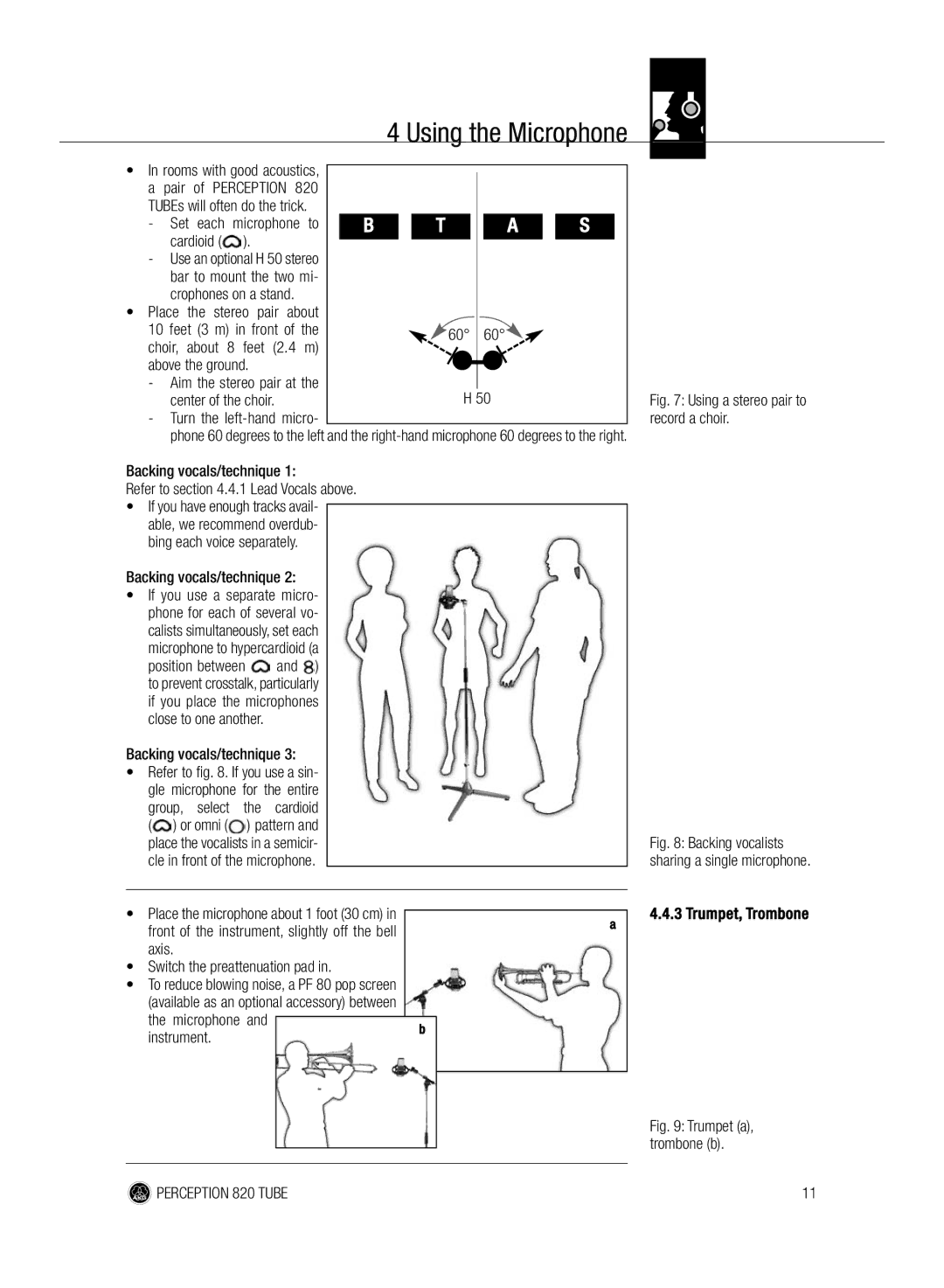820 specifications
The AKG Acoustics 820 is a professional studio headphone that offers a blend of comfort, durability, and exceptional sound quality, making it an ideal choice for both audio engineers and musicians. Renowned for its ability to deliver accurate audio reproduction, the K820 is designed for serious listening, mixing, and recording sessions.One of the key features of the AKG K820 is its high-performance drivers, which provide a wide frequency response, ranging from deep bass to crisp highs. This high fidelity makes it suitable for various applications, including critical listening in studios or casual listening at home. The headphones feature an open-back design, which enhances the soundstage and provides a more natural and immersive listening experience. This design reduces the feeling of isolation, allowing users to remain aware of their surroundings without compromising audio enjoyment.
Comfort is paramount when it comes to long recording or mixing sessions, and the K820 excels in this aspect. The headphones are equipped with plush ear pads and an adjustable headband that ensures a snug yet comfortable fit. This ergonomic design minimizes fatigue, enabling users to wear them for extended periods without discomfort.
Another significant characteristic is the headphone’s lightweight construction, which contributes to long-term wearability. Despite being lightweight, the K820 is built with robust materials designed to withstand the rigors of professional use. The headphones also come with a detachable cable, which not only enhances portability but also allows for easy replacement in case of damage.
The AKG Acoustics 820 headphones have a nominal impedance that makes them compatible with a wide range of devices, from professional audio interfaces to portable music players. The headphones also feature a high sensitivity rating, ensuring that they can produce loud sound levels without distortion, even when powered by lower-output devices.
In terms of aesthetics, the K820 sports a sleek and modern design, appealing to professionals and casual users alike. The matte finish and streamlined silhouette give an elegant touch, aligning with AKG’s reputation for high-quality audio products.
In summary, the AKG Acoustics 820 headphones combine advanced technologies, high comfort levels, and exceptional sound quality, making them a top choice for anyone serious about audio. Their robust build, ergonomic design, and superior audio performance position them as a reliable tool in any sound professional's arsenal.

